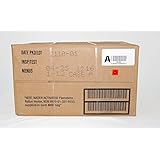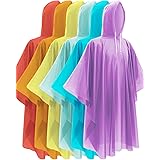1. Physical Barriers
Creating Strong Perimeters
In my experience, one of the first things I did when I started living off-grid was to focus on my perimeters. This means installing sturdy fences or walls that can deter unwanted visitors. It gives you peace of mind knowing that you have strong physical barriers in place.
The type of materials you choose can also play a big role. I recommend using durable materials like wood, metal, or even stone if you’re feeling ambitious. Make sure your fencing is tall enough to be intimidating but also looks inviting enough to keep the neighborhood friendly.
Additionally, consider adding locked gates. I can’t tell you how much I’ve appreciated having a gate that I can secure when I leave my property for any amount of time. It’s these little details that really make a difference in feeling safe at home.
Securing Entry Points
Doors and windows are the most common entry points for any potential intruders. I always make sure that they are reinforced with solid locks. Deadbolts are a must, but I’ve even gone the extra mile by adding additional security measures like window bars or security screens.
Keep an eye on your windows, too. Choosing double-pane windows can add an extra layer of security, as they are harder to break. Plus, they help with insulation, which is a bonus in any off-grid setup.
Having a solid plan for securing entry points helps not just with physical security, but boosts your confidence, allowing you to fully enjoy your off-grid lifestyle.
Using Natural Barriers
Another creative security measure is taking advantage of the natural landscape. Think about creating barriers with thick bushes or trees around your property. These not only look great but can also serve as obstacles for anyone trying to access your property unnoticed.
I’ve planted thorny bushes at strategic locations, which not only deter trespassers but also provide additional privacy. Who knew that nature could be such a handy security system?
== > What if ... Get a FREE Subscription to PREPARE
Being in tune with your surroundings can provide both beauty and safety. Plus, who doesn’t love to see some greenery in their living space?
2. Surveillance Systems
Installing Cameras
When I decided to take my security up a notch, I installed surveillance cameras around my property. They’ve been a game changer! Not only do they act as a deterrent, but they also give you that extra pair of eyes when you’re busy with other things.
There are so many options available nowadays. I went with wireless options that connect to my smartphone, which allows me to keep an eye on things even when I’m away. It’s comforting to know that I can check in anytime I want.
Make sure to place these cameras at points of entry, like driveways and pathways. You want to cover all your bases, so you can catch anything that happens before it escalates.
Motion Sensors
Alongside cameras, I also invested in motion sensor lights. These not only illuminate the area when someone approaches but also serve as a warning signal for me as well. I love the fact that they light up my property while deterring unwanted guests.
I placed the sensors strategically near entry points and along paths to my home. It’s surprising how a simple light can change the whole vibe of the space at night.
Plus, they help you feel a lot safer when you’re out enjoying the evening. No one wants to wander in the dark, right?
Remote Monitoring
With technology advancing, you can now monitor your property from nearly anywhere. I can check my cameras directly from my phone, and it’s made a huge difference in how I feel about my security.
Consider using systems that allow remote access and control. Some systems even alert you if there’s unusual activity, which gives you a heads-up before things go too far.
Even in an off-grid lifestyle, this technology can come in handy, allowing me the freedom to roam without worrying about what’s happening at home.
3. Community Connections
Getting to Know Your Neighbors
One of the best security measures I’ve found is building strong relationships with my neighbors. When you live off-grid, community becomes more than just people living nearby; they look out for one another.
I recommend hosting informal get-togethers to foster these connections. It’s amazing how a simple BBQ or gathering can help establish trust and goodwill amongst neighbors.
A tight-knit community is like having a built-in security team. The more connected you are, the more eyes you have watching your back.
Neighborhood Watch Programs
Once I got to know my neighbors, we discussed forming a neighborhood watch program. It wasn’t anything too formal—just a group of us looking out for each other and sharing updates.
We often communicate via a group chat, and it’s great for alerting everyone when something seems off. Trust me, having that support can be a real game changer.
Organizing simple patrol rotations has made a big difference, too. It ensures that someone is always keeping an eye out, strengthening our security as a little community living off-grid.
Sharing Resources
Another advantage of community living is being able to share resources. Whether it’s tools or expertise, pooling together can boost overall security. For example, I borrowed a neighbor’s equipment to enhance my home defenses, which saved me time and effort.
Get Preparedness and Self-Reliance Tips. Subscribe Now!
Helping each other out strengthens those relationships and fosters a sense of security that goes beyond what any lock can provide.
Consider offering what you can too! If you have skills in gardening, home repair, or even security systems, share that knowledge. It builds trust and creates a solid network of mutual support.
4. Emergency Preparedness
Developing Emergency Plans
When you live off-grid, having an emergency plan is non-negotiable. I spent some time creating a comprehensive plan with my family, which includes all kinds of scenarios—natural disasters, break-ins, you name it.
First, we established a meeting point if something happens when we’re out. It’s comforting to know that we all have a safe place to regroup. It’s amazing what a little organization can do to ease your mind.
Being prepared not only brings peace of mind, but it also helps everyone stay focused during a crisis, rather than running around in a panic.
Stocking Up on Supplies
Part of being prepared means having enough supplies to deal with emergencies. I’ve built up a stockpile of essential items, from food and water to medical supplies and basic tools. You really can’t be too ready!
Not only does this make it easier to ride out a disaster, but it also helps bring a sense of self-sufficiency to living off-grid. Having what you need on hand can alleviate a lot of stress.
It’s good practice to rotate your supplies as well, so nothing goes stale. Just another simple yet effective way to be ready for whatever comes your way.
Regular Safety Drills
Conducting safety drills with my family has proven to be very beneficial. We regularly go through our emergency plans, so everyone knows what to do when the chips are down. It sounds tedious, but trust me, it’s worth it!
Conducting drills also allows us to evaluate our plans and make tweaks here and there. Sometimes you discover weaknesses in your plan that you’d never have figured out otherwise.
These moments not only build confidence, but they also strengthen the family bond as we work together towards a common goal—keeping each other safe.
5. Personal Safety Protocols
Establishing a Routine
When living off-grid, routines can establish a sense of safety. I’ve made it a habit to follow specific protocols, like checking locks at sunset and keeping my phone charged in case of emergencies.
Routines help you stay focused and aware of your environment. It’s those little practices that make you feel more secure in your space, which I find super important.
Plus, it helps create a mental checklist that keeps your mind active and aware, leading to more proactive steps towards safety.
Being Mindful of Your Surroundings
Staying aware of my surroundings has become second nature at this point. I always make it a point to notice who is around me and what’s happening in my environment. This awareness is crucial in identifying potential threats before they become issues.
I also encourage friends and family who visit to do the same. Safety is a collective effort and keeping each other in the loop can help everyone stay vigilant.
Even simple changes, like taking different routes when walking around, can keep you one step ahead and can become part of your everyday mindset.
Trusting Your Instincts
Trusting my instincts has been invaluable. If something feels off, I’ve learned not to brush it aside. I always take these feelings seriously because there’s usually a good reason behind them.
Whether it’s feeling uncomfortable around someone new or noticing unusual sounds at night, tuning into those instincts can help prevent issues down the line. It’s all about being in touch with your gut.
In off-grid living, that instinct can serve as an early-warning system. It’s a tool I rely on heavily, allowing me to ensure my safety and my family’s.
Frequently Asked Questions
1. What are the most effective physical barriers for off-grid living?
The most effective barriers include strong wooden or metal fences, locked gates, and even natural barriers like dense bushes or trees. These can deter intruders and provide a sense of safety.
2. How can surveillance systems enhance my security?
Surveillance systems, like cameras and motion sensors, act as both deterrents and a means of monitoring your property. Modern systems can often be accessed remotely via your smartphone, which gives you peace of mind when you’re away.
3. How important are community connections in off-grid living?
Building relationships with your neighbors is crucial as they can look out for you and vice versa. Start by building connections and consider forming neighborhood watch programs to enhance community security.
4. What should I include in my emergency preparedness plan?
Your emergency plan should include meeting points, necessary supplies, and regular drills with family members. This helps everyone stay calm and ready in case of a crisis.
5. How can I improve my personal safety routines while living off-grid?
To improve personal safety, establish routines for checking locks, stay mindful of your surroundings, and always trust your instincts. It’s these small daily practices that can make a big difference.






